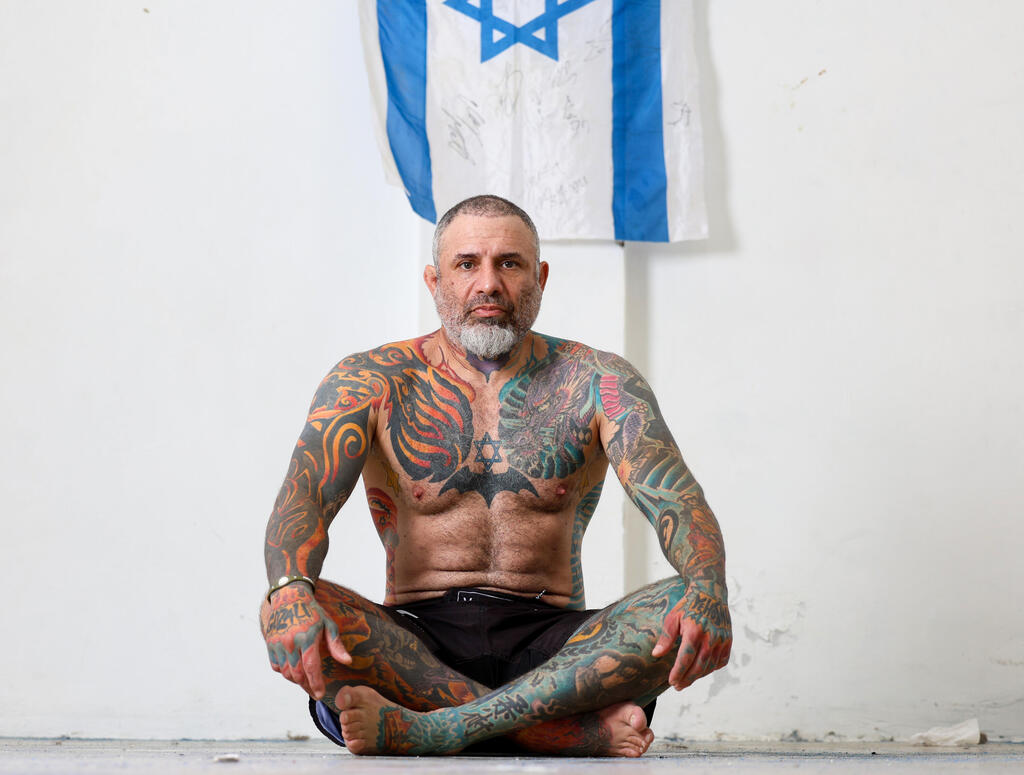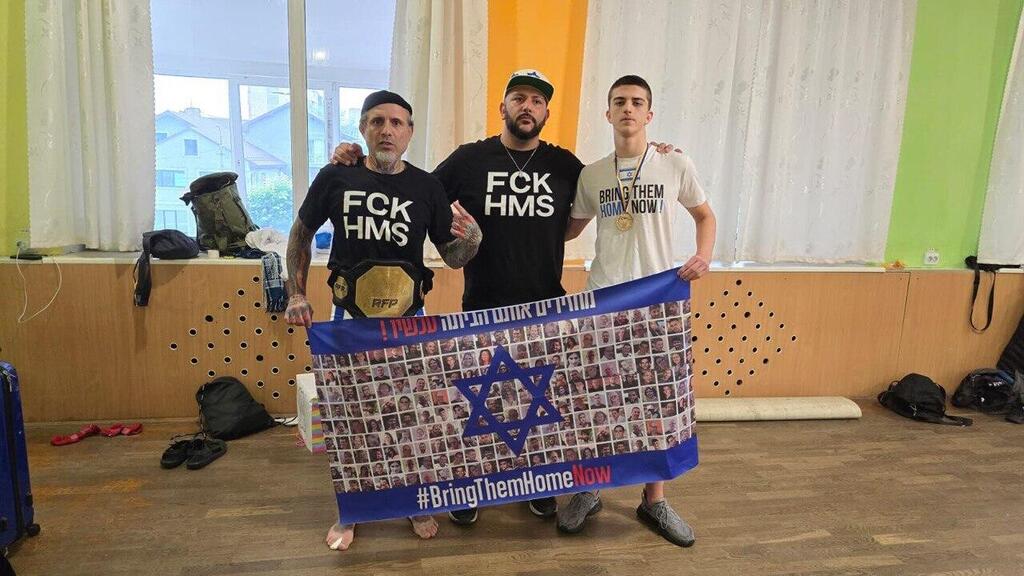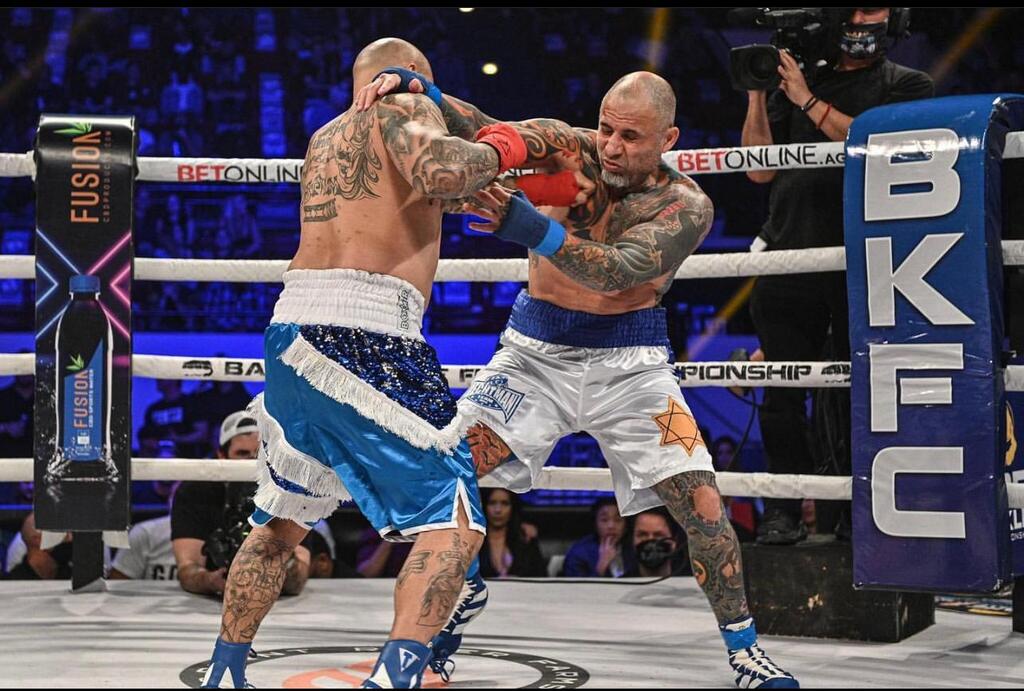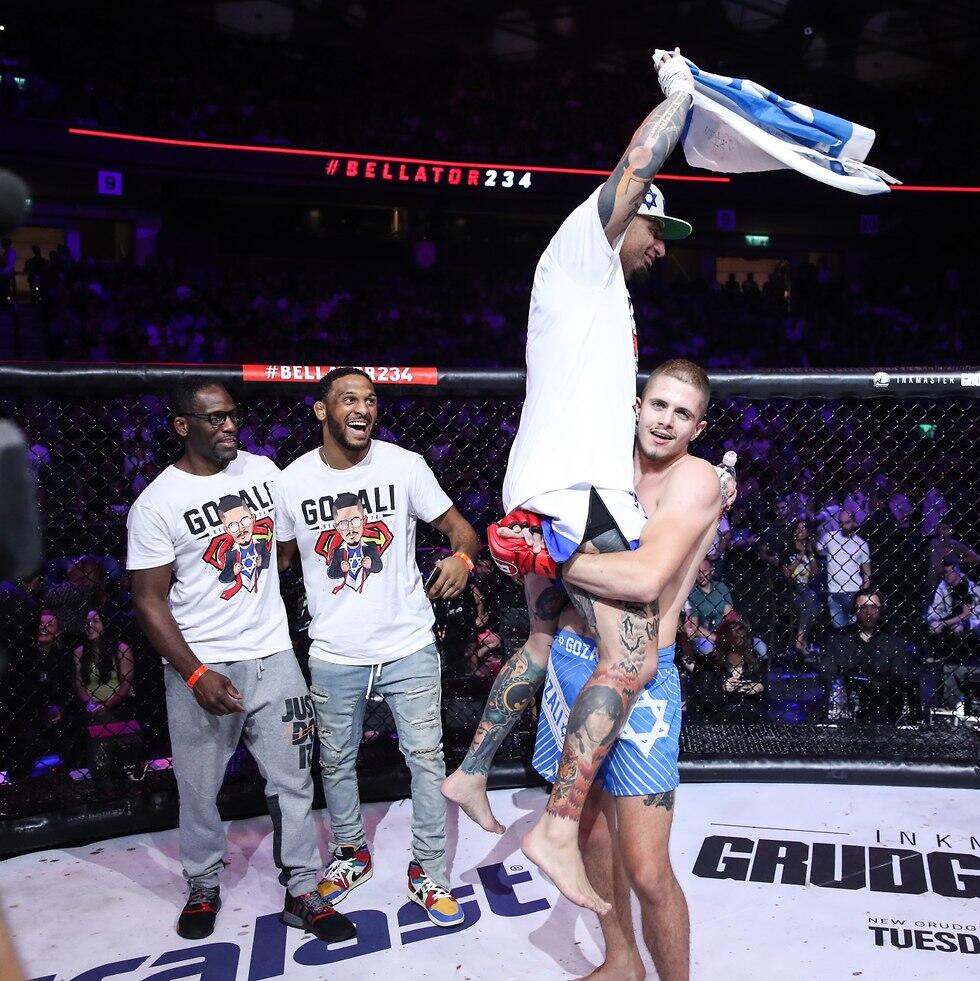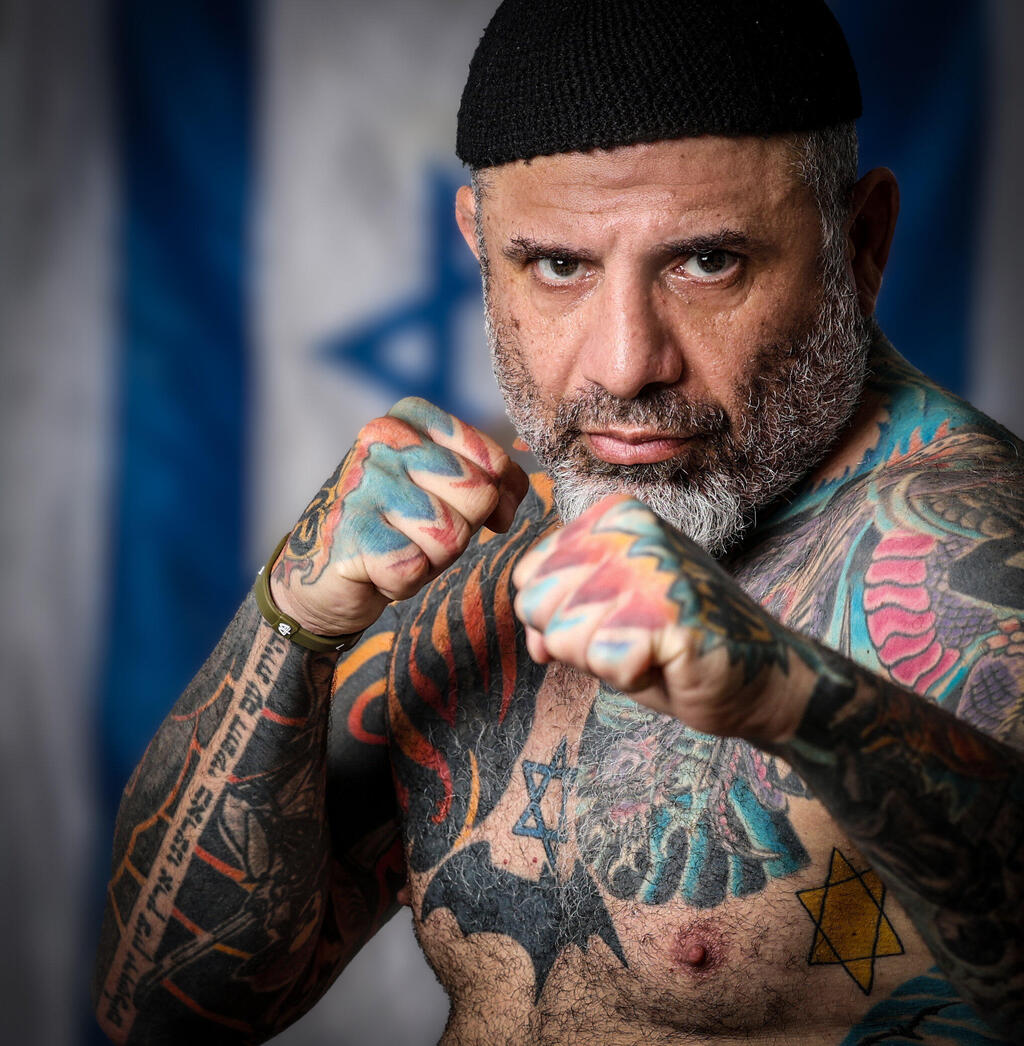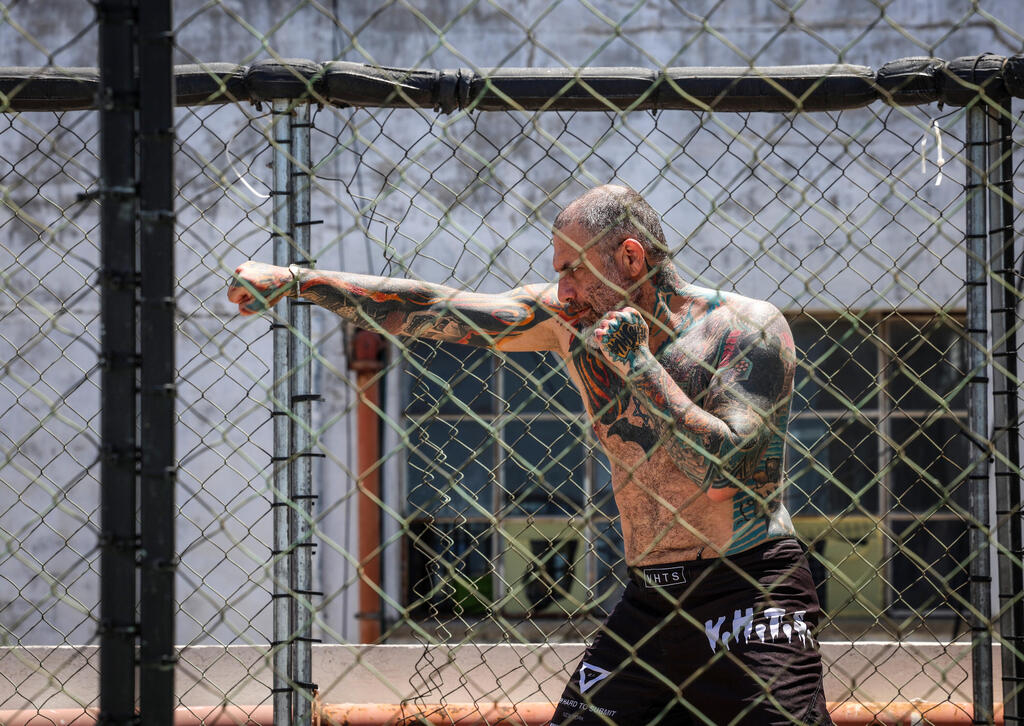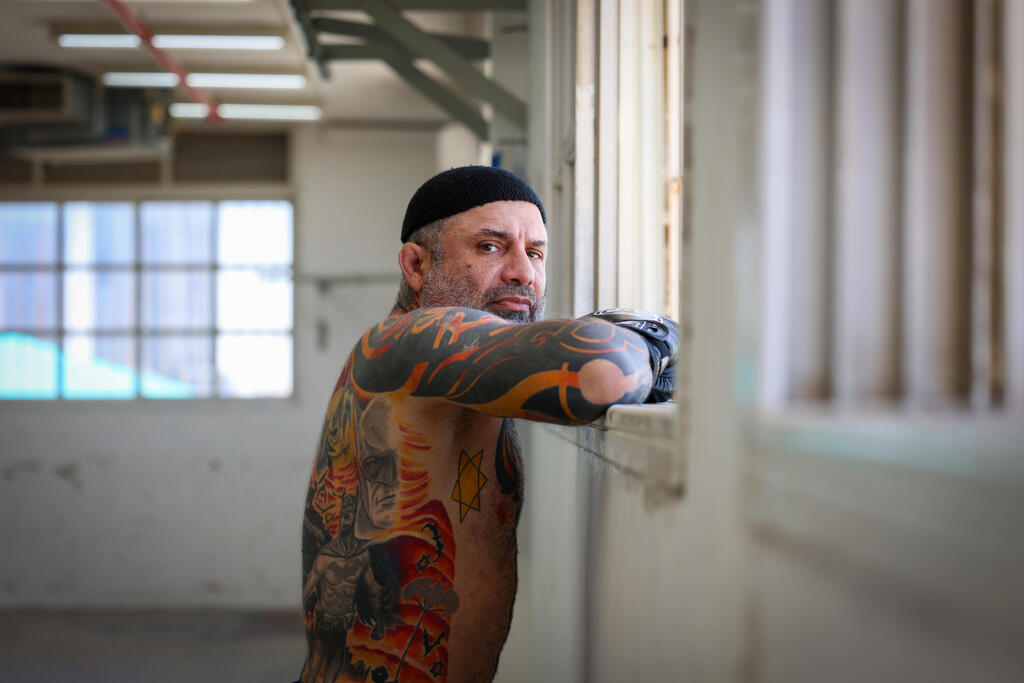What makes a good MMA fighter? According to Haim Gozali, it starts well before the first punch. “You have to know how to sell yourself outside the cage, to always stay in the headlines,” he says. “A great fighter needs to talk, to present. It’s show business, first and foremost.”
Gozali, a pioneer of the sport in Israel who turned 52 this week, knows how to deliver. Nicknamed “The Israeli Batman” for his deep affection for the comic book character, he sees himself as a national ambassador. He’s not shy about political brawls on social media, viewing them as part of a broader Israeli advocacy effort. He even ran for the 25th Knesset, shortly before a near-deadly incident on one of his trips to Europe.
“I’ve paid a price for the fight I’ve been waging for Israel on social media since October 7,” Gozali says. “During one trip to the Gaza border area, I posted something about an artillery shell, and it went viral—millions of views. I personally found over a hundred pages accusing me of supporting the murder of children, with posts inciting violence against me.”
Gozali felt the real-world impact of the online firestorm last year. The veteran MMA fighter was attending a tournament in Ukraine with his son Elad and coach Ben-El Hasid when, he says, the three narrowly escaped an assassination attempt.
“They broke into our room, and one guy had a knife,” Gozali recalled in an interview with Ynet and its sister publication Yedioth Ahronoth. “Ben-El fought him off, but then the guy pulled a gun and started firing at point-blank range. Elad and I took cover, then fled to another room and made our way to the roof in the middle of a crazy rainstorm. Eventually, their equivalent of a SWAT team arrived and escorted us to another hotel under heavy protection. It was a miracle we survived.”
Do you feel hostility in matches against international fighters?
“Honestly, since that incident, I haven’t traveled much for overseas tournaments,” Gozali said. “When I have, it’s always been with serious security, because of what happened in Ukraine. But even before that, I could always feel the hatred—especially when facing a Turkish or Muslim opponent.”
'So let them call me extreme'
Gozali, a Bat Yam resident, is married to Vered and the father of Aviv, Elad and Agam. He says the events of October 7 sharpened his political identity. “That cursed morning changed my life completely,” he says. “As far as I’m concerned, no enemy of Israel should remain alive. There are no innocents on the other side—it's over. They are our enemies, and for us to live in peace, we must live alone. My mother’s sister was killed in a terror attack in Jerusalem in 2000. Grief touched all of us. October 7 was my wake-up call. I fight for this country and represent its flag. Soldiers half my age are fighting so I can live here, and anyone who doesn’t want to live with us—must be destroyed.”
No innocents? What about children, women?
“When you raise a nation on the murder of Jews, then there are no innocents.”
Do you understand the criticism against you online, especially when expressing views considered extreme by many in Israel?
“I reject that. I’m a Jew. I’m not looking to kill anyone in the world—unlike the enemy who constantly wants to kill us. So let them call me extreme.”
And what do you say to critics who claim your hyper-patriotic image is a branding tool for promoting MMA?
“I don’t answer critics anymore. Jealousy became a second nature in Israel right after hatred. So now I just respond with heart emojis.”
People say sports bring nations and cultures together. Is that less true for a sport like MMA?
“I don’t agree. Every fighter I’ve faced has become my friend. I’ve brought entire delegations of fighters to Israel—guys who battled to the point of bleeding—and right after the fights, I’d take them touring Jerusalem and other holy sites. We were like brothers.”
Making history at Madison Square Garden
Over a long career in MMA, Gozali hasn’t limited himself to life inside the cage. He continues to work as a promoter and organizer of MMA events in Israel and leads the Israeli branch of Renzo Gracie, a team that helped bring MMA to the global stage and promotes the discipline of jiu-jitsu.
As a coach, Gozali passes his legacy on to the next generation—often through empowerment workshops for the community under the theme “Perseverance, Excellence and Fulfilling Dreams.” He also volunteers to train soldiers and police officers, saying it stems from a desire “to strengthen the country.”
Gozali even ventured into politics, taking the third spot on the list for the Koach Lehashpia (The Power to Make a Difference) party, which ran for the 25th Knesset. The move reflected a genuine ambition to make an impact beyond MMA, but the party failed to cross the electoral threshold, receiving the fewest votes of any list in the 2022 elections—just 156 in total. “With how Israeli politics looks today, I wouldn’t call that a big loss,” he says with a smile.
His dream of turning martial arts into a professional path began early, starting with karate classes as a child. His career highlight came in July 2017, when he made his debut at Madison Square Garden as part of Bellator 180. Though he lost to American fighter Ryan Couture in a unanimous decision, stepping into the sport’s most prestigious arena marked a personal triumph—one he would return to multiple times. “That was the moment I realized I’d fulfilled my dream.”
Another unforgettable moment?
“A fight at Menora Arena. Even though I lost, I felt the massive support from the crowd. I broke a rib in the first round, and by the second round, I could barely stand—I saw the rib sticking out. They told me to stop the fight, but the crowd was chanting, ‘Gozali! Gozali!’ and I knew I was staying in the ring till the end. It was important to keep fighting until the final moment, even though I lost on points.”
How do you deal with defeat, beyond the physical pain?
“Winning and losing are the same. Once you accept that losing is part of the game, you stop fearing it—and that’s how you achieve real success. I’m 52, still fighting, and in two weeks I’m competing in the World Championship in Poland, while most people my age can barely move. I’m not afraid to lose. My career is still going strong.”
Get the Ynetnews app on your smartphone: Google Play: https://bit.ly/4eJ37pE | Apple App Store: https://bit.ly/3ZL7iNv
Why hasn’t MMA reached mainstream status in Israel?
“Globally, it’s a very popular sport. In Israel, it’s the only sport besides soccer and basketball that brings in thousands of fans. What’s missing are major investors—like in soccer. Once that happens, MMA will be the biggest sport in Israel.”
'I can’t retire'
Gozali, who celebrated his 52nd birthday this week, is coming to terms with his age. “It scares me to think I’m in my sixth decade—I don’t feel that age,” he says with a smile. “Life flew by. I feel like a kid, still looking for Batman figures in stores.”
What does your daily routine look like?
“I train. Everything revolves around workouts and nutrition. I’ll admit—I don’t really have hobbies besides watching TV and training.”
Your children are following in your footsteps. What’s it like seeing them in the ring?
“It’s not fun. This is a sport where you get hit. When I take a punch, it’s fine. But when your son gets hit—you feel helpless.”
Do you have a retirement date?
“I’ve already retired 200 times, so I’ve come to the conclusion that I can’t retire. It’s a part of me. I don’t even make money from it anymore. After the financial collapse I went through during COVID, this just gives me life—it gives me meaning.”


